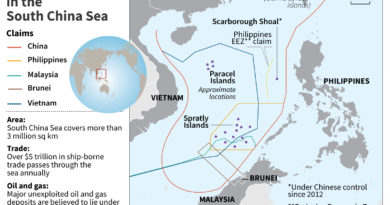OP-ED EDITORIAL | Doping issue imperils Philippine-PH Olympics participation
LESS than seven months before the 33rd Summer Olympics opens in Paris, a dark cloud hangs over the Philippines’ participation in the quadrennial sports spectacle.
Last week, the World Anti-Doping Agency (WADA) issued a final warning to the Philippine Sports Commission (PSC) that it has until February 13 to comply with the WADA Code.
Failure to do so will mean the country cannot compete in the Olympics or other major international sports events, much less host them. Individual Filipino athletes or teams can participate, but they cannot carry or display the Philippine flag.
.
Russian athletes know all too well the ignominy of marching in the opening ceremonies of a sports event as a “stateless” delegation.
A WADA-commissioned investigation concluded that Russia ran a state-sponsored doping program for four years across the “vast majority” of Summer and Winter Olympics events.
The program was exposed during the Sochi 2014 Winter Olympics, where Russia’s sports ministry “directed, controlled and oversaw” manipulation of urine samples provided by its athletes.
As a result, WADA has banned Russia from all major sporting events for four years, beginning with the 2020 Tokyo Olympics.
Only Russian athletes who are dope-free can compete, but only under a neutral flag.
Our athletes could face the same situation.
WADA is requiring the PSC to implement an “effective, intelligent, and proportionate” test distribution plan and provide it with a list of the athletes in its training pool.
The PSC must also promptly prosecute doping cases and notify WADA about their outcome.
PSC Chairman Richard Bachmann said the commission met with WADA officials on January 25 “to foster open communication, address the pending concerns and revisions raised by WADA, and collaboratively undertake measures to ensure complete compliance at the earliest possible time.”
Bachmann gave the assurance that the PSC was “in a constructive dialogue with WADA, working collectively to address any remaining concerns and to ensure that our national athletes can continue to compete on the global stage with honor and integrity.”
What needs explaining is why the PSC took a long time to address such an urgent matter.
Last September, WADA notified the PSC of its failure to correct “nonconformities.” Citing one example, it said the commission sat on the case of a Filipino athlete who failed a doping test in 2016.
For some unfathomable reason, the PSC did not respond to the notification. On January 23, WADA Director General Olivier Niggli sent the commission a stern warning. If the PSC “does not dispute any of these elements in writing to WADA within 21 days from the date of this formal notice, the allegation of non-compliance will be deemed admitted, the consequences of non-compliance and the reinstatement conditions proposed by WADA will be deemed accepted, and this formal notice will automatically become a final decision with immediate effect.”
It will not be the first time doping has clouded Philippine sports. In 2018, rising basketball star Kiefer Ravena was suspended by the International Basketball Federation (FIBA) for 18 months after he tested positive for three WADA-banned substances.
Ravena said he took a pre-workout drink, unaware it contained the illegal cocktail.
More recently, naturalized player Justin Brownlee failed a doping test after helping steer Gilas Pilipinas to a gold medal finish in men’s basketball at the Asian Games in Hangzhou, China, last year.
The International Testing Agency (ITA), which the Asian Games organizers hired to screen the participating athletes for performance-enhancing drugs, reported that a urine sample from Brownlee had traces of Carboxy-THC, which is on the WADA prohibited list.
Brownlee admitted taking THC to relieve muscle pain.
He did not contest the finding and was provisionally suspended. A final ruling could ban him from international competition for two years. That is a big blow to Gilas, which has yet to qualify for the Paris Olympics.
Nine other athletes, including Filipino cyclist Ariana Patrice Evangelista and Jordanian basketball player Sami Bzai, failed the doping test in Hangzhou.
The fate of the Philippines’ participation in the Paris Games now hinges on whether the PSC can satisfactorily fulfill the WADA requirements.
We definitely do not want to see Filipinos competing as stateless athletes in Paris.
.

@[email protected]



 Memento Maxima Digital Marketing
Memento Maxima Digital Marketing






